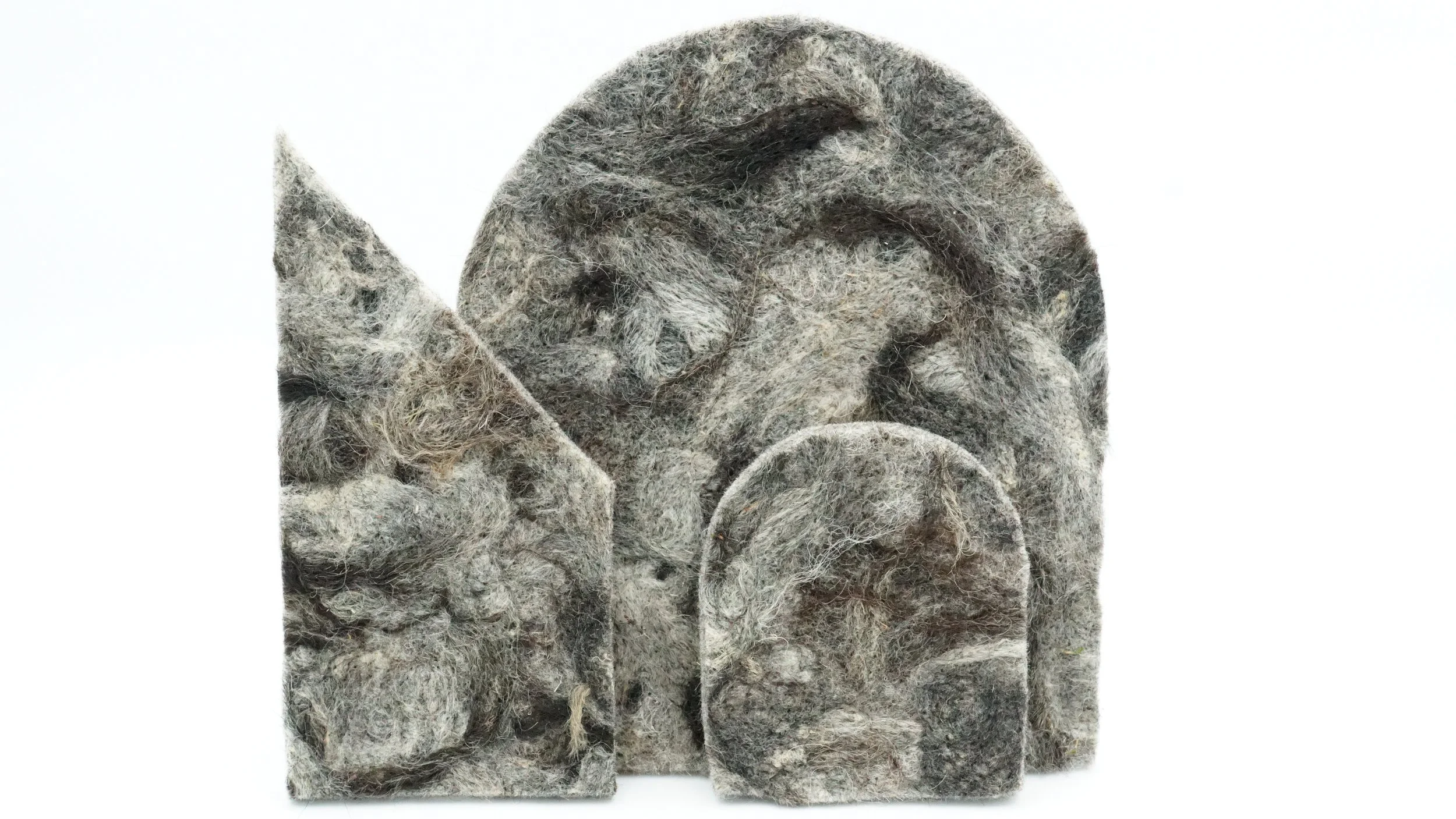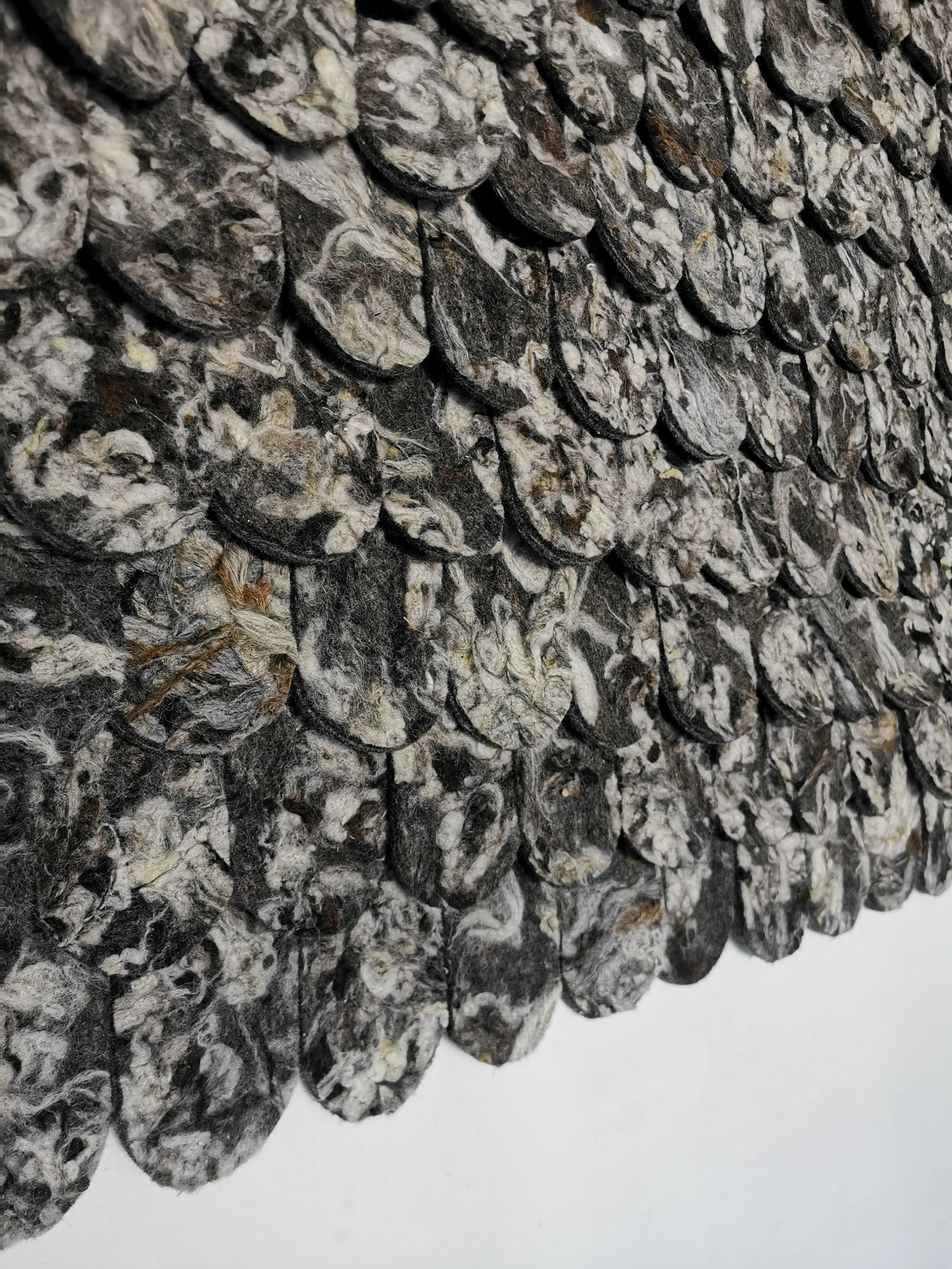Acoustic wool tiles
Woolly Silent™ is an acoustic wall tile made of sorted low-value wool that has unique natural properties for use in interiors. The decorative wall tiles are 100% natural and utilize the wool's sound-absorbing, insulating and self-cleaning qualities.
The wool is naturally fire-retardant, is breathable and antiseptic, and has moisture-regulating properties that contribute to a healthy indoor climate. The wool is also very durable and is resistant to dirt and water. The wool tiles are light in weight, and are an environmentally friendly product that is naturally degradable at the end of its life cycle.
Woolly Silent™ creates a warm and pleasant atmosphere, and the natural color spectrum and tactility in the wool provide a decorative effect. Each sheep has its own characteristic wool and color, and therefore each batch of wool tiles will also be unique. This gives the product a distinctive quality and its own aesthetics, and means that the customer will always get a unique product.
The Bioregion Institute focuses on utilization of existing resources and side streams that can contribute to new circular value creation and more profitable value chains. 4000 tonnes of wool arrive at the Nortura and Fatland wool reception centers annually and are sorted into 16 classes. 14%, approx. 560 tonnes, is low-grade wool in class C2 Black (lowest class). This low-value wool is little used in the yarn and textile industry, and due to the low price of pigmented wool, the wool from old and smaller breeds such as Wild Sheep and Old Norwegian Sheep is often not delivered and cut. This wool is therefore a raw material with low utilization, but has unique properties for use in interiors. We at the Bioregion Institute have therefore addressed this and are working to transform an untapped resource into useful, beautiful products that can give low-value wool a new value.
Teater Vestland, Nynorskhuset. Photo: Espen Nyttingnes
Categories
Biomaterial
Wild wool
Delivery
Material Research
Biobased material
Innovative production
Timeline
2021 – ongoing
Funded by
Norwegian research council
Research team
Silje Klepsvik
Birgitta Ralston
Siv Støldal
Presearch team
Marion Hennes
Gaspard Fechino







